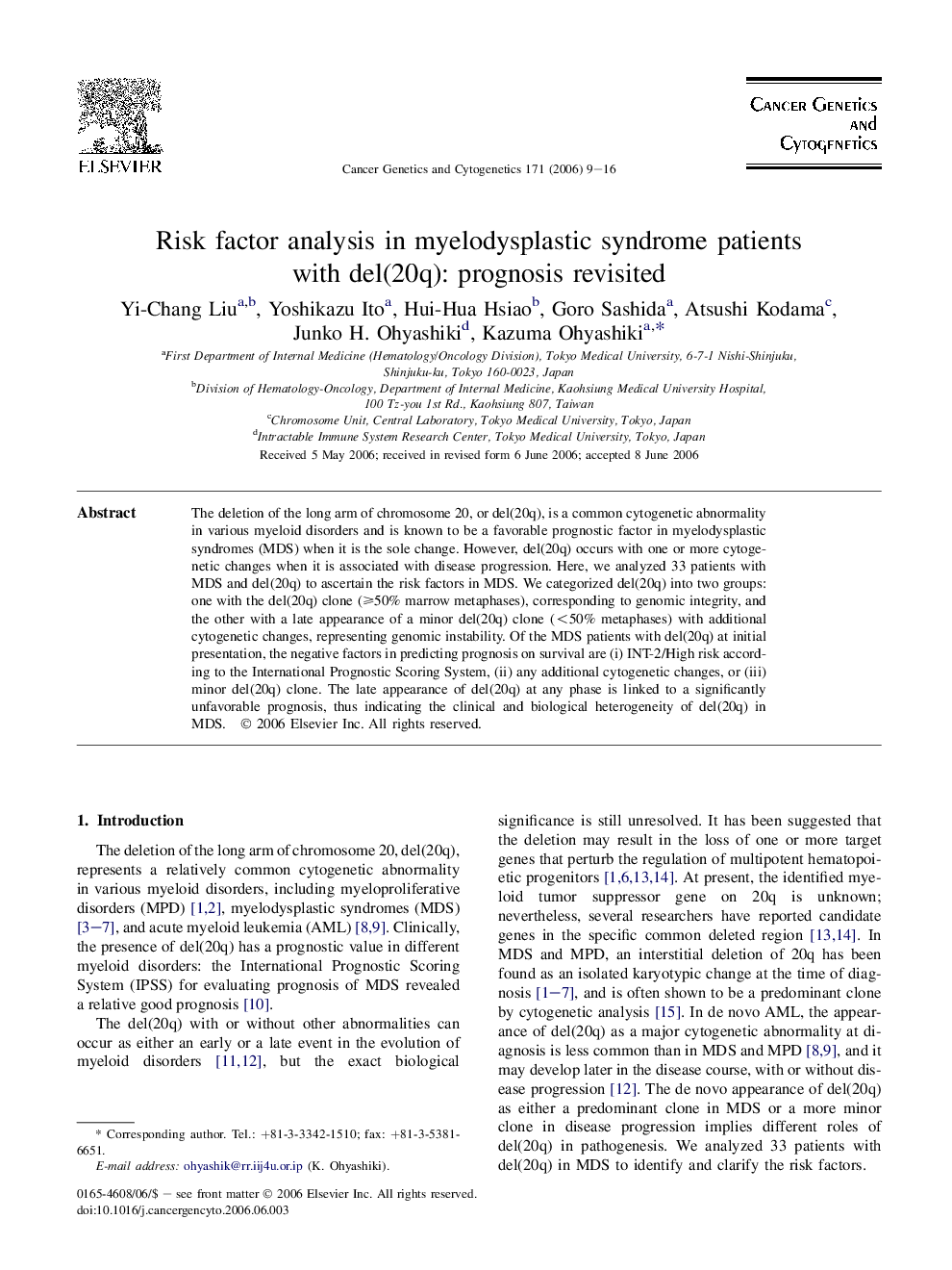| Article ID | Journal | Published Year | Pages | File Type |
|---|---|---|---|---|
| 2111812 | Cancer Genetics and Cytogenetics | 2006 | 8 Pages |
The deletion of the long arm of chromosome 20, or del(20q), is a common cytogenetic abnormality in various myeloid disorders and is known to be a favorable prognostic factor in myelodysplastic syndromes (MDS) when it is the sole change. However, del(20q) occurs with one or more cytogenetic changes when it is associated with disease progression. Here, we analyzed 33 patients with MDS and del(20q) to ascertain the risk factors in MDS. We categorized del(20q) into two groups: one with the del(20q) clone (≥50% marrow metaphases), corresponding to genomic integrity, and the other with a late appearance of a minor del(20q) clone (<50% metaphases) with additional cytogenetic changes, representing genomic instability. Of the MDS patients with del(20q) at initial presentation, the negative factors in predicting prognosis on survival are (i) INT-2/High risk according to the International Prognostic Scoring System, (ii) any additional cytogenetic changes, or (iii) minor del(20q) clone. The late appearance of del(20q) at any phase is linked to a significantly unfavorable prognosis, thus indicating the clinical and biological heterogeneity of del(20q) in MDS.
